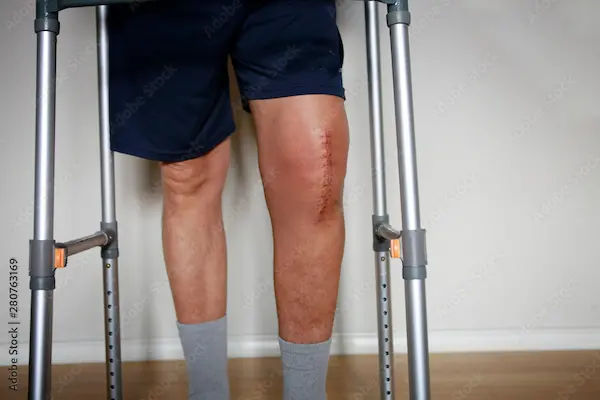Four Types of Dialysis Explained
Learn about the four main types of dialysis: hemodialysis, peritoneal dialysis, CRRT, and nocturnal dialysis. Understand how each method works, its pros and cons, and tips to manage dialysis effectively.


If you or a loved one has been advised to undergo dialysis, you may have questions about what it is, how it works, and the different types available. Dialysis is a life-saving treatment that helps filter waste and excess fluids from the blood when the kidneys can no longer do their job effectively.
In this article, we’ll explain the four main types of dialysis in simple terms, along with their benefits, how they work, and tips for managing life on dialysis.
1. Hemodialysis (HD)
What is Hemodialysis?
Hemodialysis is the most common type of dialysis. It uses a machine called a dialyzer to clean your blood by removing waste, extra salts, and fluids.
How Does It Work?
- A surgeon creates an access point (usually in the arm) called a fistula, graft, or catheter.
- During treatment, blood flows from your body into the dialyser, where it is filtered and then returned to your body.
- Each session lasts about 3–5 hours and is typically done 3 times a week at a dialysis center.
Pros & Cons
- Effective at cleaning blood quickly.
- Done at a medical centre with professional supervision.
- Requires frequent visits (3 times a week).
- May cause low blood pressure or muscle cramps during/after treatment.
Tips for Managing Hemodialysis
- Follow a kidney-friendly diet (low sodium, potassium, and phosphorus).
- Keep your access site clean to prevent infections.
- Stay hydrated but avoid excess fluids between sessions.
2. Peritoneal Dialysis (PD)
What is Peritoneal Dialysis?
Peritoneal dialysis uses the lining of your abdomen (peritoneum) as a natural filter. A special fluid (dialysate) is introduced into your belly through a catheter, which absorbs waste and is later drained out.
Consult Top Specialists
How Does It Work?
- A soft catheter is placed in your abdomen during a minor surgery.
- You perform exchanges (draining in clean fluid and removing waste fluid) multiple times a day (Continuous
- Ambulatory PD CAPD) or use a machine overnight (Automated PD APD).
Pros & Cons
- More flexibility – can be done at home or work.
- Gentler on the heart compared to hemodialysis.
- Risk of infections (peritonitis) if hygiene isn’t maintained.
- Requires daily treatment (4–5 exchanges for CAPD or overnight for APD).
Tips for Managing Peritoneal Dialysis
- Keep the catheter area clean to prevent infections.
- Follow a balanced diet as advised by your doctor.
- Stay active but avoid heavy lifting to protect the catheter.
3. Continuous Renal Replacement Therapy (CRRT)
What is CRRT?
CRRT is a slow, continuous dialysis method used in critically ill patients (usually in ICUs) whose bodies cannot handle rapid fluid removal.
How Does It Work?
- A machine slowly filters blood over 24 hours or longer.
- Often used for patients with acute kidney failure or severe fluid overload.
Pros & Cons
- Gentler for unstable patients.
- Continuous removal of toxins and fluids.
- Only available in hospital ICUs.
- Requires close monitoring.
Who Needs CRRT?
- Patients with severe infections, trauma, or major surgeries.
- Those who cannot tolerate standard hemodialysis.
4. Nocturnal Dialysis
What is Nocturnal Dialysis?
Nocturnal dialysis is a longer, slower form of hemodialysis done overnight while you sleep.
How Does It Work?
- Similar to regular hemodialysis but runs for 6–8 hours at night.
- Can be done at home or in a center.
Pros & Cons
- More effective toxin removal due to longer sessions.
- Fewer dietary restrictions compared to standard HD.
- Requires special training if done at home.
- May disrupt sleep initially.
Tips for Managing Nocturnal Dialysis
- Ensure a comfortable sleep setup (adjust bed, temperature).
- Follow strict hygiene if doing home dialysis.
Which Type of Dialysis is Right for You?
The best type depends on:
- Your overall health
- Lifestyle preferences
- Doctor’s recommendation
- Discuss with your nephrologist to decide which option suits you best.
Living Well on Dialysis: Helpful Tips
- Eat a kidney-friendly diet (limit salt, potassium, phosphorus).
- Stay active (light exercises like walking).
- Take medications on time.
- Keep follow-up appointments.
If you need guidance, Apollo 24|7 offers expert nephrology consultations and dialysis support. You can book an appointment or schedule tests easily through the app or website.
Conclusion
Dialysis can feel overwhelming, but understanding your options makes it easier to manage. Whether you choose hemodialysis, peritoneal dialysis, CRRT, or nocturnal dialysis, proper care and lifestyle adjustments can help you lead a fulfilling life.
If you have concerns, don’t hesitate to consult a kidney specialist for personalised advice.
Consult Top Specialists
Consult Top Specialists
Dr Gayatri Pegu
Nephrologist
15 Years • MD (General Medicine) DM(Nephrology)
Guwahati
Apollo Clinic Guwahati, Assam, Guwahati
Dr Ch Sashidhar
Nephrologist
20 Years • MBBS, MD General Medicine, DNB, Nephrology
Secunderabad
Apollo Hospitals Secunderabad, Secunderabad

Dr Praveen Kumar Etta
Nephrologist
10 Years • MBBS,MD DM(SGPGI) FORMER ASST(PIMS)
Hyderabad
Apollo Spectra Ameerpet, Hyderabad

Dr. Pardha Saradhi
Nephrologist
9 Years • MBBS, MD-DNB (Gen. Med.), DNB (Nephro)
Hyderabad
Apollo Hospitals D R D O kanchanbagh, Hyderabad
(75+ Patients)

Dr. Manju Kamal
Nephrologist
12 Years • MBBS,MD(General Medicine), DNB,DM(Nephrology)
Angamaly
Apollo Hospitals Karukutty, Angamaly
Consult Top Specialists
Dr Gayatri Pegu
Nephrologist
15 Years • MD (General Medicine) DM(Nephrology)
Guwahati
Apollo Clinic Guwahati, Assam, Guwahati
Dr Ch Sashidhar
Nephrologist
20 Years • MBBS, MD General Medicine, DNB, Nephrology
Secunderabad
Apollo Hospitals Secunderabad, Secunderabad

Dr Praveen Kumar Etta
Nephrologist
10 Years • MBBS,MD DM(SGPGI) FORMER ASST(PIMS)
Hyderabad
Apollo Spectra Ameerpet, Hyderabad

Dr. Pardha Saradhi
Nephrologist
9 Years • MBBS, MD-DNB (Gen. Med.), DNB (Nephro)
Hyderabad
Apollo Hospitals D R D O kanchanbagh, Hyderabad
(75+ Patients)

Dr. Manju Kamal
Nephrologist
12 Years • MBBS,MD(General Medicine), DNB,DM(Nephrology)
Angamaly
Apollo Hospitals Karukutty, Angamaly




